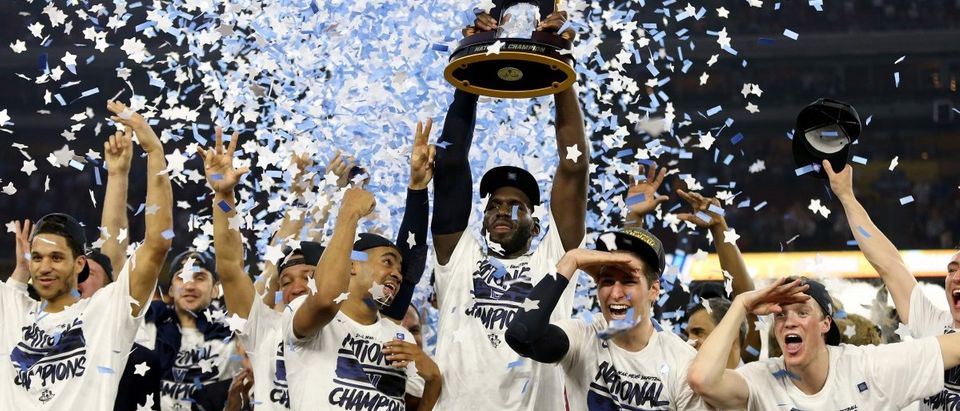We find ourselves at the conclusion of March Madness, a month filled with passionate fans across the country cheering on their favorite college teams and players. But sports are more than a mere pastime or entertainment. The sports industry is just that – an industry – and one that generates countless jobs and billions of dollars in economic activity around the globe. Like many other diverse industries, it relies on a key ally in order to be able to bring fans the sporting events and programing they demand: intellectual property rights.
If you’ve been lucky enough to attend an NCAA game this season, you’ve likely been among the thousands of fans sporting the hats, jerseys, t-shirts, and jackets of their favorite teams on their way into the arena. Even before the first tip off, these trademarks and brands provide an example of the criticality of intellectual property rights to the business of sports.
Sports trademarks and brands provide a touchstone for fans to rally around and form a sense of common purpose and community – imagine how many Yankees hats you see on the streets of New York, or Michael Jordan jerseys in Chicago. These brands mean something to sports fans. But in addition, they also provide an important source of revenue for teams to invest in their futures, in the best athletes, coaches, and staff.
Intellectual property also enables fans everywhere to watch sports events on the other side of the globe. Networks compensate sports leagues for the right to broadcast sports events, ultimately enabling millions of fans to follow their favorite teams – wherever they may be in the world. Pay-per-view broadcasts, which are typically restricted to combat sports such as boxing, mixed martial arts, or professional wrestling, provide another type of model that provides access to content no matter the viewer’s location. Without adequate copyright protections and the means to monetize these broadcasts, there simply would not be viable business models, and fans would be deprived of the programming they want.
Unfortunately, there is a growing problem facing the sports community of criminals who prey upon the passion of sports fans for their own personal gain. Sports merchandise is routinely counterfeited. During the lead up to the 2016 Super Bowl alone, various federal agencies seized over 450,000 counterfeited items worth over $39 million. Not only are these fakes of inferior quality – sometimes dangerously so – the proceeds from their purchase often fund organized criminal organizations. Likewise, online pirates – also often organized criminal networks – work to steal the transmission of live sports broadcasts and stream it to the internet and rake in the cash from charging viewers or from ad revenue. Aside from the obvious point that such theft is simply wrong, this behavior undermines the value of the broadcast itself – and likewise the leagues, teams, and their employees, whose business models and livelihoods depend on this revenue.
What’s more, on the consumer side, it’s important to remember that online pirates are not benevolent actors simply trying to save sports fans a few dollars out of the kindness of their hearts. In sports, there is a term for them: cheaters. They are criminals seeking to profit off of the passion of fans and the intellectual property of the sports leagues and broadcasters. Often those accessing pirated material soon after find their devices hacked and their personal information stolen.
As we wrap up March Madness, it’s important for fans everywhere to understand the harm done to the sports community by intellectual property theft. Regardless of how your bracket did, make a good bet and stick with legitimate merchandise and broadcasts. Otherwise, your bet is lost before the game has even started.
Mark Elliot is executive vice president of the U.S. Chamber of Commerce’s Global Intellectual Property Center (GIPC).


